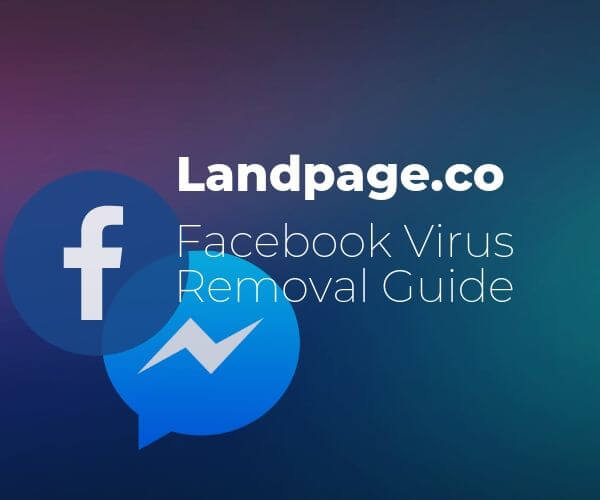Update July 2019! What is Landpage.co? Is landpage.co a virus? Can you get a virus through Facebook Messenger?
SIDENOTE: This post was originally published in June 2019. But we gave it an update in July 2019
The domain Landpage.co was reported to be part of a new virus Facebook Messenger. Landpage.co Facebook virus has been affecting online users through one of the most popular services of the social platform – Messenger. The Landpage.co spam campaigns contain a virus link to a fake video and sometimes a shocked emoji too. Since hackers push the spam messages by using compromised Facebook accounts you may receive the message from someone that is part of your friend list. The purpose of this scam virus is to trick you into visiting questionable web pages where deceptive offers and other scams are hosted. Since those pages may pose danger to your operating system, it is advisable to refrain from loading the content presented by Landpage virus.
In case you experience symptoms of this virus on Facebook Messenger, keep up with our article and find out how to fully get rid of it.

Threat Summary
| Name | Landpage.co |
| Type | Redirect, Scam, PUP |
| Short Description | A questionable website associated with new Facebook Messenger virus. Known to present deceptive offers. |
| Symptoms | Strange message with virus link to what appears to be a video. Affected web browser is redirected to Landpage.co Browser slowdowns occur due to increased number of online ads. |
| Distribution Method | Freeware Installations, Bundled Packages |
| Detection Tool |
See If Your System Has Been Affected by malware
Download
Malware Removal Tool
|
| User Experience | Join Our Forum to Discuss Landpage.co. |

Landpage.co Facebook Virus – Spread and Impact
The domain Landpage.co has been detected in an active malicious campaign that targets Facebook users. That’s why it has been given the name Landpage.co Facebook virus. The threat has been detected to affect Facebook’s Messenger feature/app.
Landpage.co Facebook virus is associated with a deceptive message that appears in Messenger. It contains a link to video content as well as short text and a shocked emoji. To make you more to click the link cybercriminals could send it via the hacked Facebook profile of a friend of yours. Can you get a virus through Facebook Messenger?
In fact, yes. If you follow the presented link, you may load a compromised website that is set to generate some kind of deceptive offer. At worst, when you visit the site pushed by this new Facebook Messenger virus it could trigger an unnoticed download process of malicious software. Since there are many [wplinkpreview url=”https://sensorstechforum.com/facebook-virus-remove/”] Facebook virus variants out there you should be quite responsible while using the social platform.
As of the Landpage.co, it is yet another questionable website that is part of scamming online campaigns. There are many variants of this virus. One particular version redirects to the sub-domain https://www.landpage.co/fa7e47552d280dddf315 where a business optimization training video is offered:
Another version of Landpage.co virus lands on the sub-domain https://www.landpage.co/28daysjumpstart. As it could be seen in the picture below, the web page is configured to offer fitness programs:
Apparently, the Landpage.co virus may be configured to display different fraudulent offers in order to become able to harvest sensitive credentials, sell rogue applications or even deliver malicious software. In the event that you load such a scam page in your browser, we advise you to avoid entering your information.
Beware that the unexpected appearance of Landpage.co Facebook virus may also be a sign of a present undesired program on your device. When the appearance of this virus redirect is associated with the presence of undesired program (adware, browser extension, browser hijacker, etc.) on your system, you may also start noticing lots of online ads displayed on the websites you visit as well as changes of essential browser settings.
An additional impact that could occur without your knowledge is the collection of various details stored by the affected browser:
- Visited URLs and websites
- Browser’s home page
- Search queries
- Search queries on the visited web pages
- Type of used browser
- Operating system type
- Internet protocol (IP) address
- Geographic location
- The domain name of current Internet service provider (ISP)
- Diagnostic information which describes how their Services are operating on the system
Data records are likely to be transferred to remote servers and then used for the configuration of aggressive advertising campaigns that could flood your browser with lots of annoying advertisements.
Based on all security issues that may come as a result of infection with Landpage.co Facebook virus experts recommend its complete removal the moment its presence is noticed.

How to Remove Landpage.co Facebook Virus
In order to remove Landpage.co Facebook virus along with all associated files that enable its appearance in the browser, you should complete several removal steps. In the guide below you will find all removal steps in their precise order. You could choose between manual and automatic removal approaches. In order to fully get rid of this particular undesired program and strengthen the security of your device we recommend you to combine the steps. Have in mind that installed files associated with this redirect may be detected with names different than Landpage.co.
Since this specific type of scam can have different capabilities that may record a password change so that the software can be able to regain control over your account, we do advise that you perform the removal in the following methodological steps:
1. Remove the Facebook Nike “Virus” from your devices.
2. Log out all of your Facebook active logins from Settings>Security.
3. Make sure that you change your password immediately after you log out the devices and not only your Facebook password but all the passwords used on your devices as well.
Useful Tip: We strongly suggest that you use a strong password, because it is more difficult for the crooks to crack it.
Preparation before removing Landpage.co.
Before starting the actual removal process, we recommend that you do the following preparation steps.
- Make sure you have these instructions always open and in front of your eyes.
- Do a backup of all of your files, even if they could be damaged. You should back up your data with a cloud backup solution and insure your files against any type of loss, even from the most severe threats.
- Be patient as this could take a while.
- Scan for Malware
- Fix Registries
- Remove Virus Files
Step 1: Scan for Landpage.co with SpyHunter Anti-Malware Tool
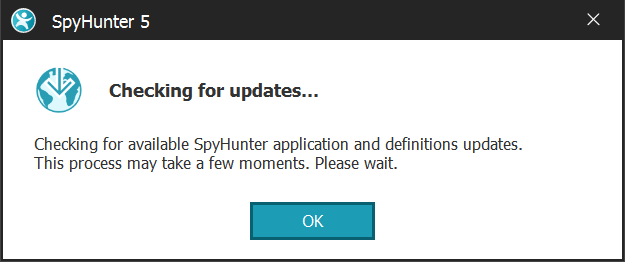
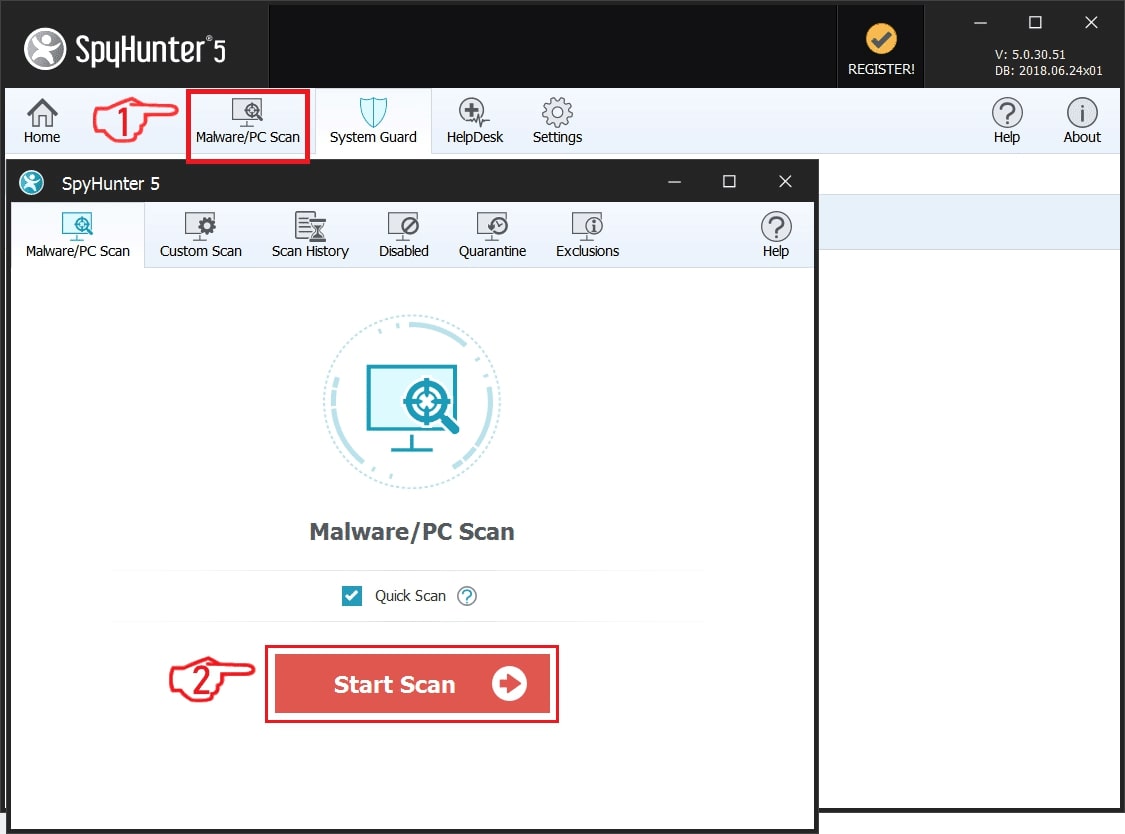
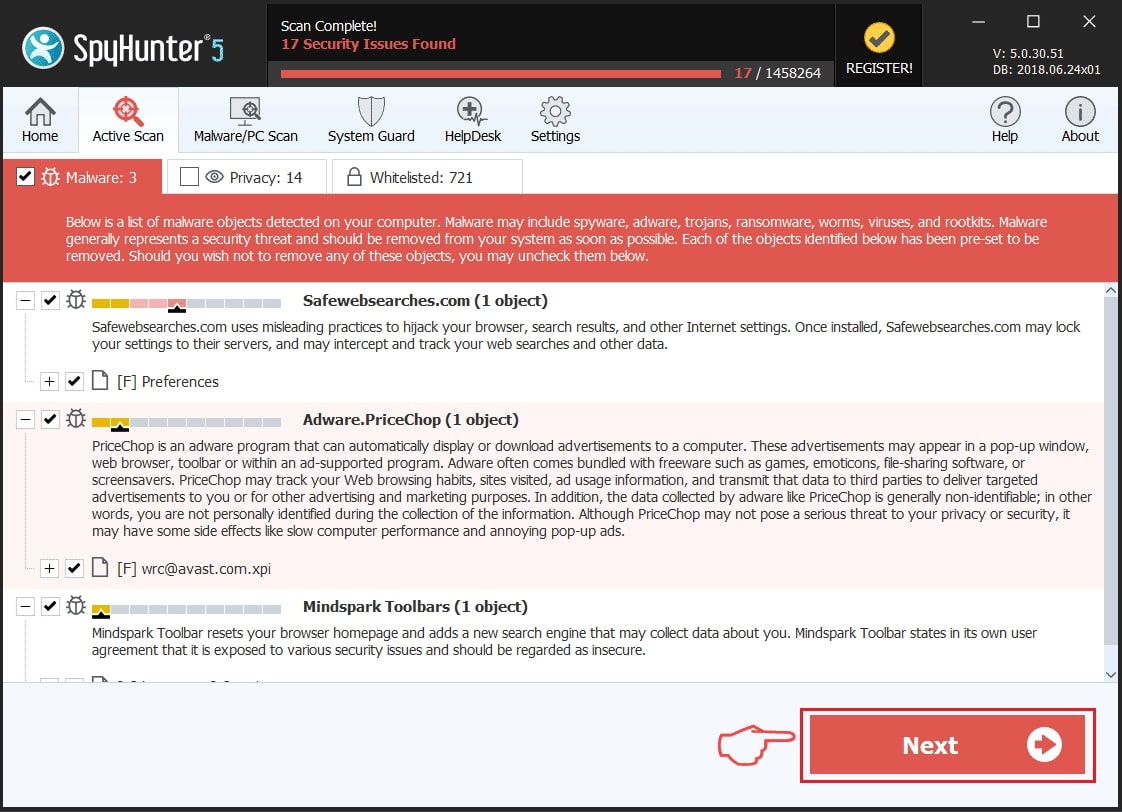
Step 2: Clean any registries, created by Landpage.co on your computer.
The usually targeted registries of Windows machines are the following:
- HKEY_LOCAL_MACHINE\Software\Microsoft\Windows\CurrentVersion\Run
- HKEY_CURRENT_USER\Software\Microsoft\Windows\CurrentVersion\Run
- HKEY_LOCAL_MACHINE\Software\Microsoft\Windows\CurrentVersion\RunOnce
- HKEY_CURRENT_USER\Software\Microsoft\Windows\CurrentVersion\RunOnce
You can access them by opening the Windows registry editor and deleting any values, created by Landpage.co there. This can happen by following the steps underneath:
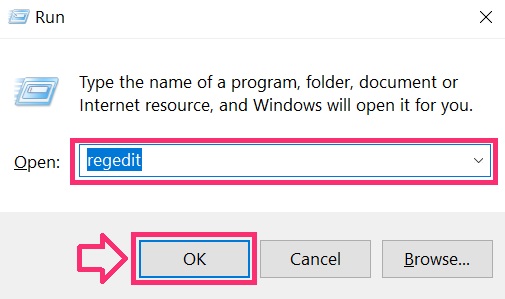

 Tip: To find a virus-created value, you can right-click on it and click "Modify" to see which file it is set to run. If this is the virus file location, remove the value.
Tip: To find a virus-created value, you can right-click on it and click "Modify" to see which file it is set to run. If this is the virus file location, remove the value.Step 3: Find virus files created by Landpage.co on your PC.
1.For Windows 8, 8.1 and 10.
For Newer Windows Operating Systems
1: On your keyboard press + R and write explorer.exe in the Run text box and then click on the Ok button.
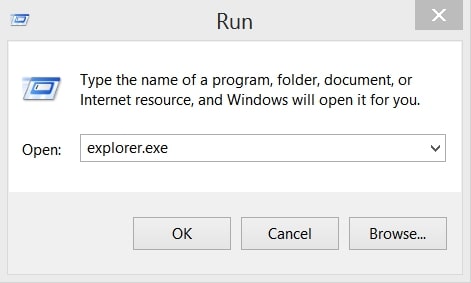
2: Click on your PC from the quick access bar. This is usually an icon with a monitor and its name is either “My Computer”, “My PC” or “This PC” or whatever you have named it.
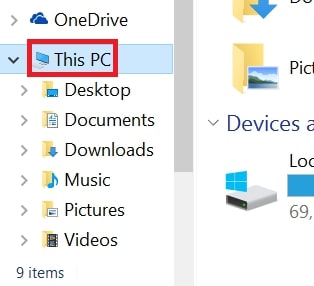
3: Navigate to the search box in the top-right of your PC's screen and type “fileextension:” and after which type the file extension. If you are looking for malicious executables, an example may be "fileextension:exe". After doing that, leave a space and type the file name you believe the malware has created. Here is how it may appear if your file has been found:
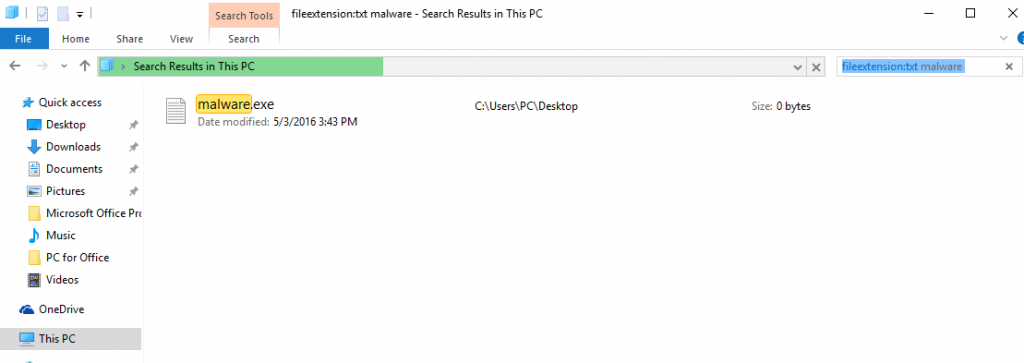
N.B. We recommend to wait for the green loading bar in the navigation box to fill up in case the PC is looking for the file and hasn't found it yet.
2.For Windows XP, Vista, and 7.
For Older Windows Operating Systems
In older Windows OS's the conventional approach should be the effective one:
1: Click on the Start Menu icon (usually on your bottom-left) and then choose the Search preference.
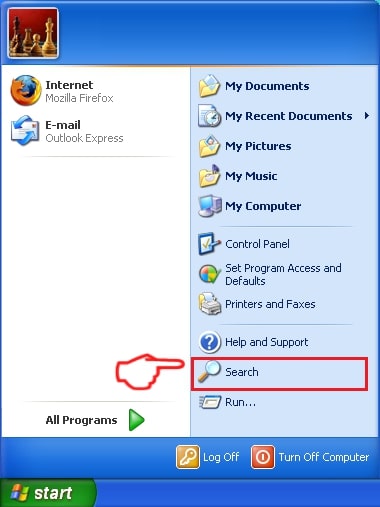
2: After the search window appears, choose More Advanced Options from the search assistant box. Another way is by clicking on All Files and Folders.
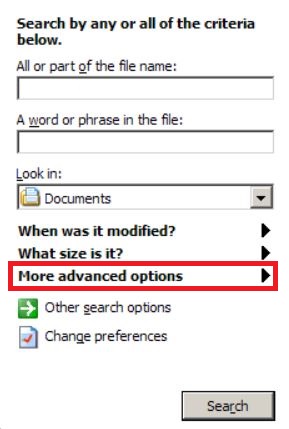
3: After that type the name of the file you are looking for and click on the Search button. This might take some time after which results will appear. If you have found the malicious file, you may copy or open its location by right-clicking on it.
Now you should be able to discover any file on Windows as long as it is on your hard drive and is not concealed via special software.
Landpage.co FAQ
What Does Landpage.co Trojan Do?
The Landpage.co Trojan is a malicious computer program designed to disrupt, damage, or gain unauthorized access to a computer system. It can be used to steal sensitive data, gain control over a system, or launch other malicious activities.
Can Trojans Steal Passwords?
Yes, Trojans, like Landpage.co, can steal passwords. These malicious programs are designed to gain access to a user's computer, spy on victims and steal sensitive information such as banking details and passwords.
Can Landpage.co Trojan Hide Itself?
Yes, it can. A Trojan can use various techniques to mask itself, including rootkits, encryption, and obfuscation, to hide from security scanners and evade detection.
Can a Trojan be Removed by Factory Reset?
Yes, a Trojan can be removed by factory resetting your device. This is because it will restore the device to its original state, eliminating any malicious software that may have been installed. Bear in mind that there are more sophisticated Trojans that leave backdoors and reinfect even after a factory reset.
Can Landpage.co Trojan Infect WiFi?
Yes, it is possible for a Trojan to infect WiFi networks. When a user connects to the infected network, the Trojan can spread to other connected devices and can access sensitive information on the network.
Can Trojans Be Deleted?
Yes, Trojans can be deleted. This is typically done by running a powerful anti-virus or anti-malware program that is designed to detect and remove malicious files. In some cases, manual deletion of the Trojan may also be necessary.
Can Trojans Steal Files?
Yes, Trojans can steal files if they are installed on a computer. This is done by allowing the malware author or user to gain access to the computer and then steal the files stored on it.
Which Anti-Malware Can Remove Trojans?
Anti-malware programs such as SpyHunter are capable of scanning for and removing Trojans from your computer. It is important to keep your anti-malware up to date and regularly scan your system for any malicious software.
Can Trojans Infect USB?
Yes, Trojans can infect USB devices. USB Trojans typically spread through malicious files downloaded from the internet or shared via email, allowing the hacker to gain access to a user's confidential data.
About the Landpage.co Research
The content we publish on SensorsTechForum.com, this Landpage.co how-to removal guide included, is the outcome of extensive research, hard work and our team’s devotion to help you remove the specific trojan problem.
How did we conduct the research on Landpage.co?
Please note that our research is based on an independent investigation. We are in contact with independent security researchers, thanks to which we receive daily updates on the latest malware definitions, including the various types of trojans (backdoor, downloader, infostealer, ransom, etc.)
Furthermore, the research behind the Landpage.co threat is backed with VirusTotal.
To better understand the threat posed by trojans, please refer to the following articles which provide knowledgeable details.


